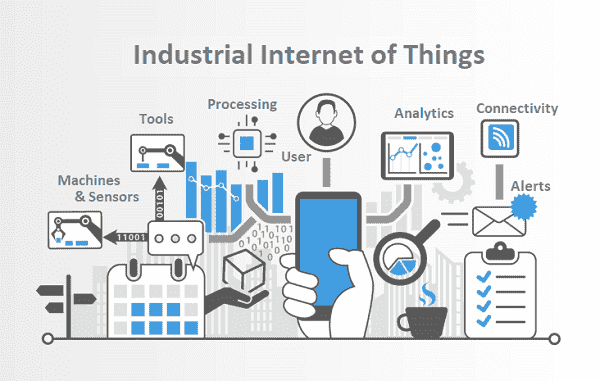How I Started IntelliGut.ai: From Personal Struggle to Innovation
A Personal Mission to Solve a Gut Health Mystery
Like many who struggle with diverticulitis, I know firsthand how unpredictable and frustrating the condition can be. One day, everything seems fine, and the next, a painful flare-up strikes with little warning. Doctors emphasize dietary management, fiber intake, and hydration—but even when I followed all the advice, flare-ups still happened.
That frustration led me down an engineering-driven path to find a better way. Unlike traditional medical researchers, I come from a background in industrial IoT, AI, software, and sensors—fields that have revolutionized other industries through real-time monitoring and predictive analytics. I began wondering:
💡 Could we apply the same technology used in industrial systems to track gut health in real time?
That question sparked the idea that would become IntelliGut.ai—a gut health monitoring platform that passively collects data, detects subtle changes, and provides early warnings before a full-blown flare-up occurs.
Industrial IoT and Predictive Data Analytics
The practice of using data collected from sensors and devices within an industrial setting (Industrial IoT) to analyse patterns and predict future events, like potential equipment failures, through advanced data analytics techniques, primarily utilizing machine learning algorithms, allowing for proactive maintenance and optimization of operations.
From IT & Engineering to Gut Health Innovation
I’m not a biologist or medical doctor—but I am an engineer and IT geek with expertise in data analytics, AI, and sensors. I’ve spent years working with industrial IoT (Internet of Things) systems, where we use sensors to monitor machines, detect anomalies, and predict failures before they happen. I realized that the human body operates in a similar way—especially the gut, which is a highly complex system producing various gases and metabolic byproducts that reflect what’s happening inside.
If we could passively track these gut-related biomarkers daily, could we start detecting patterns? Could we predict flare-ups before they happen?
The answer, I believed, was yes—but I needed data.
Prototyping a Toilet-Based Gut Sensor
The first step was to build a sensor system that could measure gut gases in real-world conditions. Instead of requiring stool samples or invasive procedures, my goal was to make something that worked passively—something you wouldn’t have to think about.
🚽 Enter the smart toilet sensor array.
I built an early prototype using gas sensors commonly used in industrial air quality monitoring and paired them with a Raspberry Pi to collect data. The first version included sensors for:
Methane & Hydrogen Sulfide – Indicators of gut microbial activity, bloating, and digestion efficiency.
Volatile Organic Compounds (VOCs) – Signals of gut fermentation, microbiome changes, and inflammation.
The initial prototype worked surprisingly well as it captured data from the real toilet environment with more than enough sensativity to detect a flare-up of diverticulitis. So I added more sensors to detect a wider range of gases, not just those related top inflamation and infection, allowing me to measure my general gut health..
Ammonia – Linked to protein digestion and dysbiosis.
CO₂ & Hydrogen – Markers of bacterial overgrowth and gut metabolism.
Environmental Factors – Adjustments for temperature and humidity to improve accuracy.
I installed the sensor system in my own toilet and began collecting data daily, comparing it with my diet, symptoms, and lifestyle changes.
Turning Raw Data into Actionable Insights with AI
Building a sensor system was just the first step. The real challenge? Making sense of the data.
🚀 That’s where AI comes in.
I developed machine learning models to analyze gut gas trends, looking for correlations between:
Gas fluctuations and symptom onset
Dietary changes and microbiome shifts
Stress markers (HRV, sleep) and gut activity
The AI began to identify patterns that I hadn’t noticed before—subtle changes in gas composition that preceded flare-ups by days. This was my first breakthrough: real-time gut monitoring and predictive insights were possible.
From Personal Experiment to a Scalable Gut Health Platform
As I refined the system, I realized this technology had applications far beyond my own condition. IntelliGut.ai isn’t just a smart toilet seat—it’s a full gut health platform that integrates:
Passive gas monitoring (toilet-based sensors)
Wearable data (HRV, sleep, stress tracking from Apple Watch, Oura Ring, WHOOP, etc.)
Diet & lifestyle inputs (food logs, hydration tracking)
Lab stool tests (microbiome sequencing & inflammatory markers)
AI-driven insights (early warning system & personalized gut health recommendations)
This multi-source approach means we’re not just collecting data—we’re contextualizing it to help users understand how stress, diet, microbiome balance, and metabolic changes influence their gut health.
What’s Next for IntelliGut?
I started IntelliGut.ai because I wanted better answers for my own gut health struggles. Now, the goal is to help others who are dealing with the same uncertainty and frustration.
🔬 We’re currently expanding beta testing to refine our AI models with more users. 📊 We’re improving our Gut Health Score, integrating wearable & microbiome data for better insights. 🚀 We’re working towards real-time gut health monitoring that could revolutionize how we manage conditions like diverticulitis, IBS, and gut dysbiosis.
Join the Future of Gut Health Monitoring
If you’ve ever wished for better insights into your gut health, IntelliGut.ai is for you. We’re building a system that empowers people like us—not just doctors—to take control of gut health with real-time, personalized data.
✅ Interested in joining our beta program? Sign up here!
📢 Want to follow the journey? Read more here on our blog or sign up for our newsletter below.
IntelliGut started as a personal experiment, but it’s growing into a revolution in gut health technology—and I’d love for you to be part of it. 🚀


